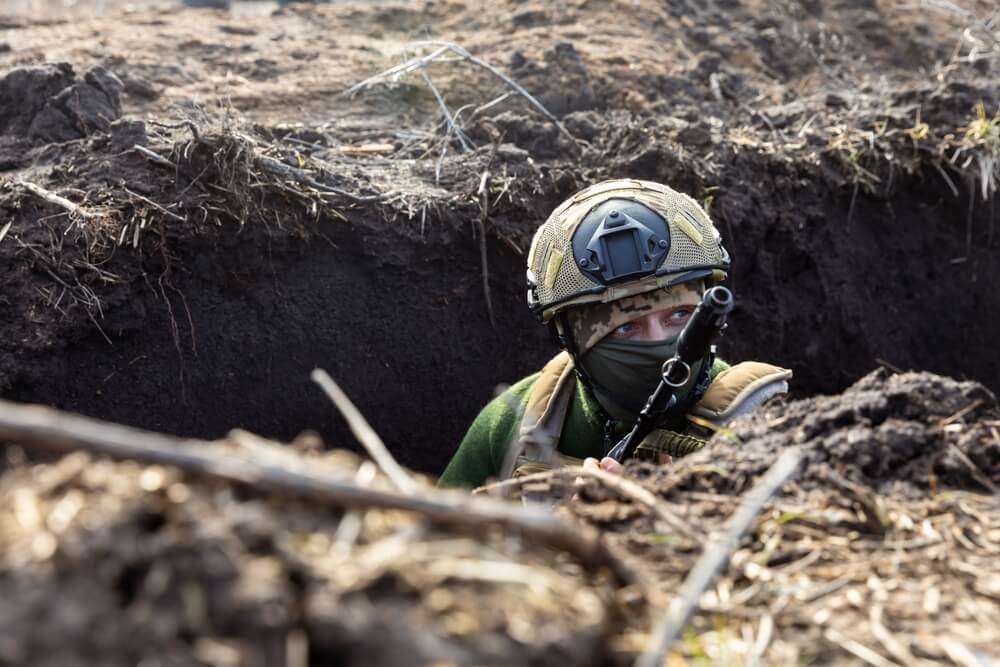Ildar Dadin, a Russian oppositionist and victim of Vladimir Putin's political persecutions, died on October 5 at the front, fighting on the side of Ukraine. His sacrifice is full of symbolism for supporters of the movement who do not see a future for Russia with Vladimir Putin at its head.
It is difficult to determine the number of Russians who came to Ukraine to fight on the side of Kyiv against the aggression committed by their country. Some estimates put it in the thousands.
These legions have been attracting a diverse range of Russians, including those of the Russki ethnicity. However, a particularly unique social group has joined and continues to join these legions: former street protesters from various Russian cities, including Moscow.
During the mass protests in Russia between 2011 and 2014, these individuals formed various protest groups. They determined long ago that peaceful opposition is meaningless and a waste of time. They realised that confronting Vladimir Putin with force was necessary.
The first victim of the repression of the opposition
They have long since come to believe that peaceful opposition initiatives hold no significance, allowing the Kremlin to gradually stifle protests in Russia through the arrest and persecution of peaceful protesters, thereby continuously reducing the number of individuals willing to take to the streets.
This became clear to them as early as 2014, when a new article was adopted in The Criminal Code, according to which anti-government activists and demonstrators were sentenced to prison if they repeatedly violated the rules of holding rallies and pickets.
Ildar Dadin was the first victim of the repressive regulation
Ildar Dadin was the first victim of that repressive regulation, which considered "violating the rules" to mean simply holding a banner at a street protest. In December 2015, Dadin became the first in Russia to be convicted under Article 212.1 of the Criminal Code, which was symbolically named "The Dadin's Article" after him.
The repression did not end only with the draconian punishment of opposition activists. When "The Dadin's Article" was passed, the repression began to intensify.
The activists encountered difficulties at work, and the authorities began harassing their relatives and loved ones.
Division of the opposition into two camps
At that point, the Russian opposition began to divide into two distinct camps. In one camp, there were ordinary street protesters who had already begun to personally experience the true evil nature of the regime.
The regime largely spared the so-called VIP opposition representatives in the other camp. The mass of sympathisers supported and sponsored them via crowdfunding, attracting thousands of people from across the country and abroad.
 When Russia attacked Ukraine on February 24, 2022, many street protesters joined Ukrainian legions
When Russia attacked Ukraine on February 24, 2022, many street protesters joined Ukrainian legions
Radical street protesters wanted to fight, while moderate opposition supported by a mass of sympathisers wanted to vote. Their discord persisted, even intensifying over time.
When Russia attacked Ukraine on February 24, 2022, many street protesters joined Ukrainian legions, as they finally found real allies who shared their views on the methods required to save Russia from the Putin regime. Ildar Dadin was one of those who joined the Ukrainian struggle.
Repression of both opposition wings
They chose that path because they belonged to minority Russian opposition circles for years. The majority of the opposition believed in being able to impact the Putin regime peacefully.
Western media was ignoring radical opposition due to the presence of other opposition figures in Moscow who were significantly better-known, had budgets, and enjoyed higher ratings.
All those more well-known main opposition figures who aspired to oppose Vladimir Putin in the elections have either died, gone to prison, or are living in exile
Back in those days, more famous opposition representatives were all advocating the idea of defeating the United Russia political party and Vladimir Putin in the course of the election.
Now, all those more well-known main opposition figures who aspired to oppose Vladimir Putin in the elections have either died, gone to prison, or are living in exile.
Ildar Dadin, along with hundreds of like-minded people, chose the path of direct struggle against Putin's Russia by siding with the Ukrainian defence.